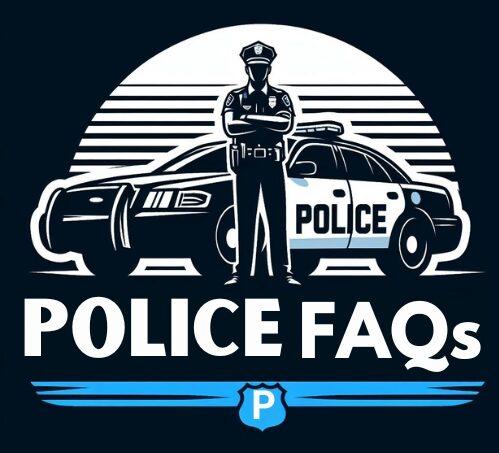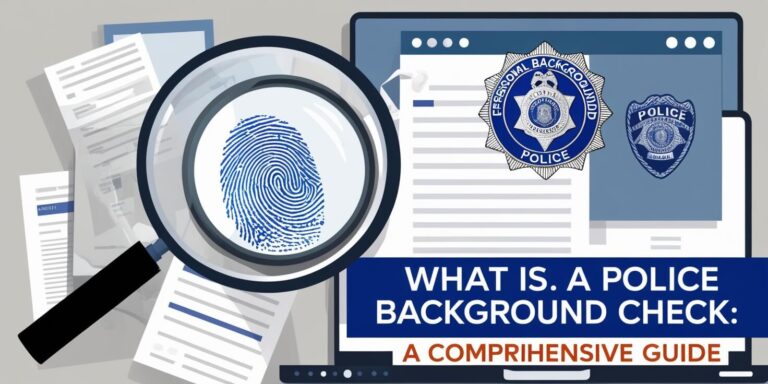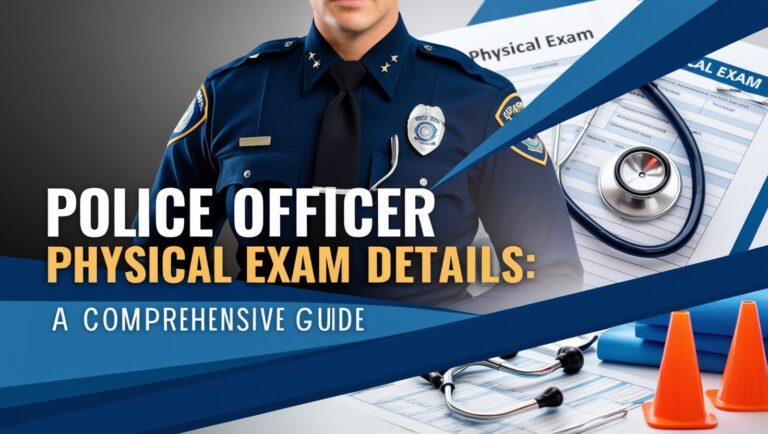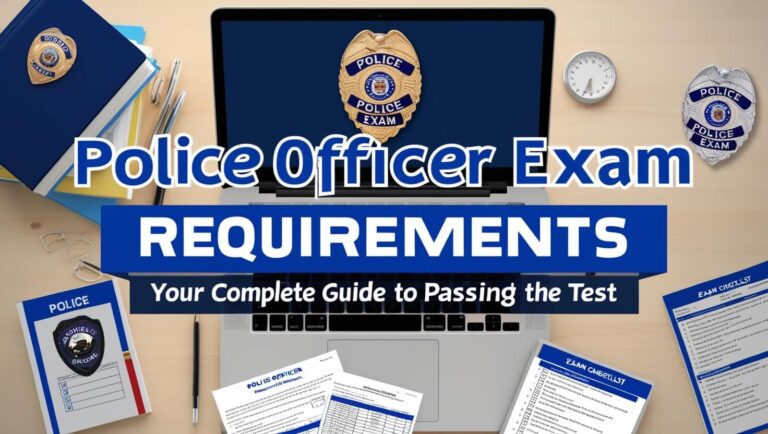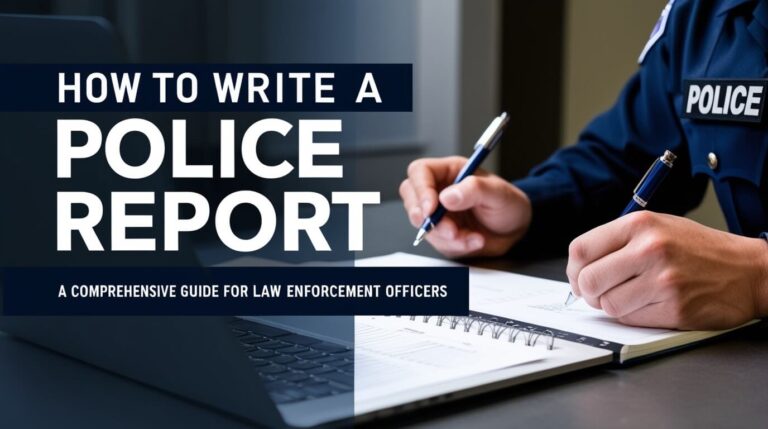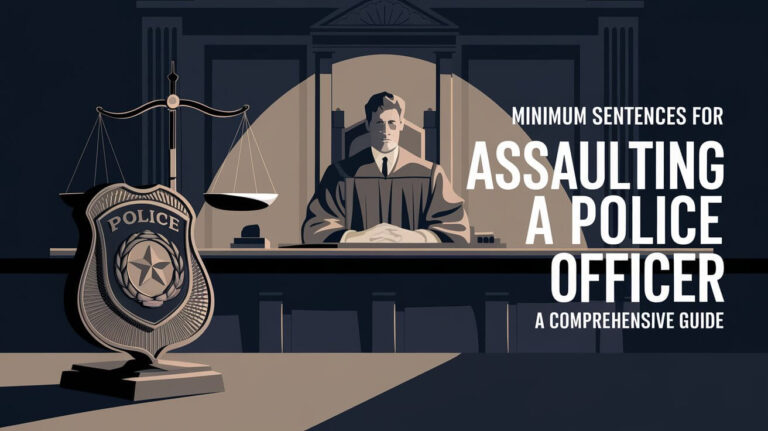How to File a Complaint Against a Police Officer: A Comprehensive Guide
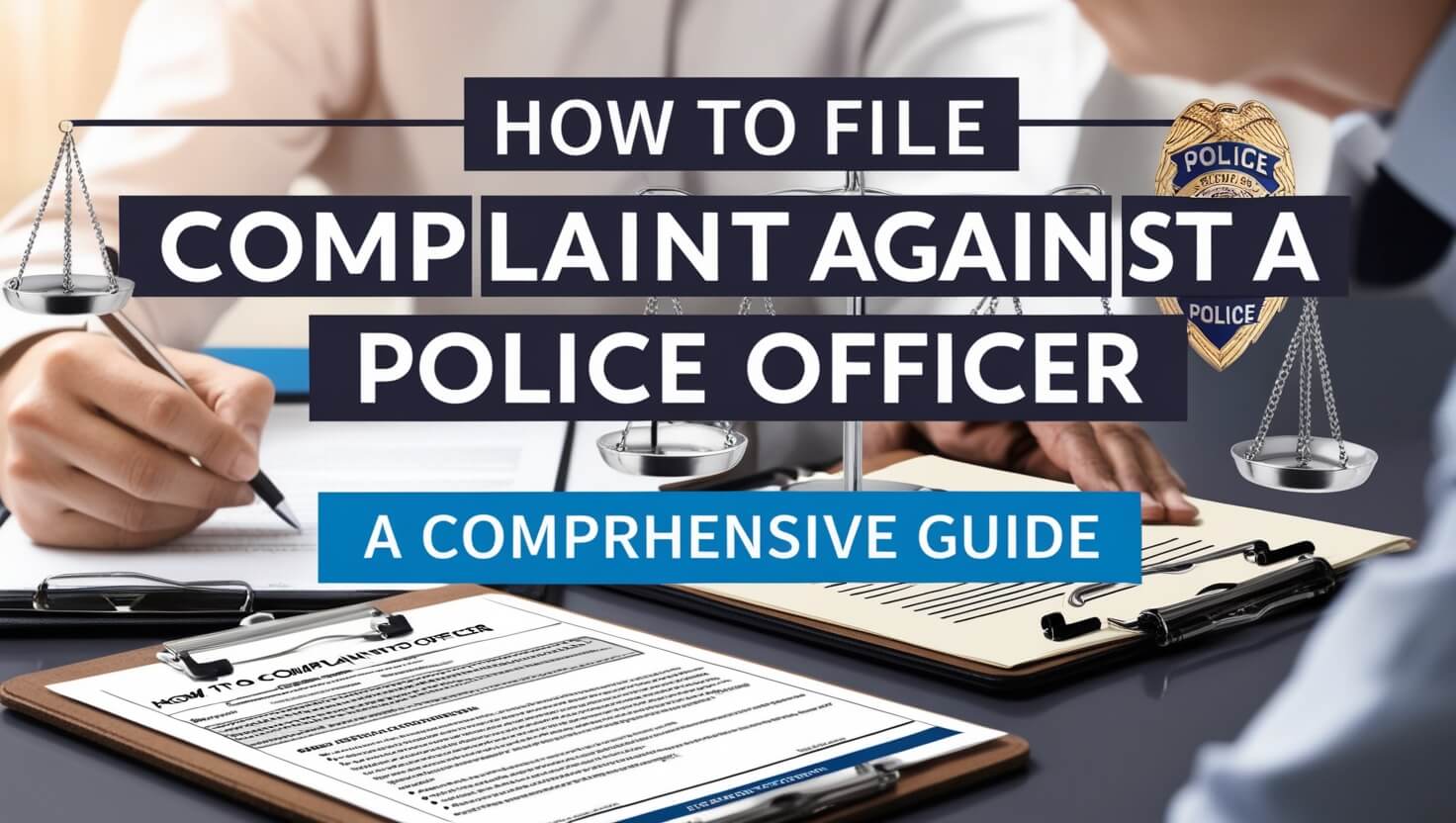
Filing a complaint against a police officer involves gathering evidence, identifying the correct authority, submitting a written complaint, and following up on the investigation process. This guide covers everything you need to know about reporting police misconduct, your rights as a complainant, and the steps to take for a successful resolution.
Police accountability is crucial for maintaining public trust and ensuring fair law enforcement. When officers abuse their power or engage in misconduct, it’s important to know how to address these issues properly. Let’s dive into the process of filing a police complaint and explore your options for seeking justice.
Understanding Your Rights When Filing a Police Complaint
Before we get into the nitty-gritty of filing a complaint, it’s essential to understand your rights. The law protects you when you report police misconduct, and knowing these protections can give you confidence throughout the process.
Legal Protections for Complainants
You have the right to file a complaint without fear of retaliation. The First Amendment safeguards your ability to speak out against government misconduct, including actions by police officers. Additionally, many states have specific laws that protect complainants from intimidation or harassment.
Key protections include:
- Freedom from retaliation for filing a complaint
- Right to a fair and impartial investigation
- Access to information about the complaint process
- Confidentiality during the investigation (in most cases)
Remember, exercising your right to file a complaint is a protected activity. If you experience any form of retaliation, document it and report it immediately.
Time Limits for Filing a Complaint
Don’t wait too long to file your complaint. Most police departments and oversight agencies have time limits for accepting complaints about officer misconduct. These limits can vary, but they typically range from 30 days to one year from the incident date.
Common time frames include:
- 60 days for internal affairs complaints
- 6 months for civilian review board complaints
- 1 year for civil rights violations
If you’re unsure about the time limit, contact the relevant agency as soon as possible. They can provide specific information about deadlines and any exceptions that might apply to your case.
Reasons to File a Complaint Against a Police Officer
Understanding what constitutes police misconduct can help you determine whether filing a complaint is the right course of action. Let’s look at some common reasons people file complaints against officers.
Common Types of Police Misconduct
Police misconduct can take many forms, ranging from minor unprofessional behavior to serious civil rights violations. Here are some frequent issues that lead to complaints:
- Excessive force
- Unlawful arrest or detention
- Racial profiling
- Verbal abuse or harassment
- Failure to provide medical assistance
- Improper search and seizure
- Dishonesty or false statements
- Neglect of duty
- Corruption or abuse of power
- Violation of department policies
If you’ve experienced any of these issues, you may have grounds for a complaint.
When to Consider Filing a Complaint
You should consider filing a complaint when you believe an officer has acted improperly or violated your rights. Some situations that warrant a complaint include:
- Physical injuries from police interaction
- Property damage during a search or arrest
- Discriminatory treatment based on race, gender, or other protected characteristics
- Denial of your constitutional rights
- Witnessing misconduct against others
Trust your instincts. If something feels wrong about your interaction with a police officer, it’s worth looking into the complaint process.
Steps to File a Complaint Against a Police Officer
Now that we’ve covered the basics, let’s walk through the steps to file a complaint against a police officer. Following these steps can help ensure your complaint is taken seriously and properly addressed.
Gathering Evidence and Documentation
Strong evidence is crucial for a successful complaint. Start collecting information as soon as possible after the incident. Here’s what you should gather:
- Date, time, and location of the incident
- Names and badge numbers of officers involved
- Witness contact information
- Photos or videos of injuries or property damage
- Medical records, if applicable
- Any relevant documents (e.g., tickets, police reports)
Create a detailed written account of what happened while it’s fresh in your memory. Include as much specific information as you can remember.
Identifying the Correct Authority to Receive Your Complaint
Knowing where to file your complaint is important. Options may include:
- Internal Affairs Division of the police department
- Civilian Oversight Agency or Review Board
- City or county government office
- State Attorney General’s office
- U.S. Department of Justice (for civil rights violations)
Start with the local police department’s internal affairs division or civilian oversight agency. If you’re unsure, call the non-emergency police number and ask about their complaint process.
Writing an Effective Police Complaint
A well-written complaint clearly communicates your concerns and increases the chances of a thorough investigation. Follow these tips:
- Be concise and stick to the facts
- Use a neutral tone and avoid emotional language
- Include all relevant details and evidence
- Clearly state what you believe the officer did wrong
- Explain how the incident affected you
- Specify what outcome you’re seeking (e.g., disciplinary action, policy change)
Remember to proofread your complaint before submitting it. A clear, error-free complaint demonstrates your seriousness and attention to detail.
Submitting Your Complaint: Methods and Procedures
Most agencies offer multiple ways to file a complaint. Common methods include:
- In-person at the police station or oversight agency office
- By mail
- Online through the agency’s website
- By phone (though a written follow-up is usually required)
Choose the method that’s most comfortable for you. If you submit in person, bring copies of all your documentation and ask for a receipt or case number for your records.
The Police Complaint Investigation Process
After you’ve filed your complaint, it enters the investigation process. Understanding this process can help you manage your expectations and stay informed about your case.
What Happens After You File a Complaint?
Once received, your complaint typically goes through these stages:
- Initial review to determine if an investigation is warranted
- Assignment to an investigator
- Interviews with you, the officer(s) involved, and witnesses
- Collection and analysis of evidence
- Determination of findings
- Recommendation for action (if misconduct is found)
- Review by department leadership
- Notification of results to you and the officer(s)
The investigator may contact you for additional information or clarification during this process.
Timelines for Complaint Resolution
The time it takes to resolve a complaint can vary widely depending on the complexity of the case and the agency’s workload. Generally, you can expect:
- Acknowledgment of your complaint within 1-2 weeks
- Regular updates every 30-60 days
- Resolution within 3-6 months for straightforward cases
- Up to a year or more for complex investigations
If you haven’t heard anything after a month, don’t hesitate to follow up and ask for an update on your case.
Possible Outcomes of a Police Complaint
Investigations can result in several outcomes:
- Sustained: The allegation is true and the officer acted improperly
- Not sustained: There’s insufficient evidence to prove or disprove the allegation
- Unfounded: The allegation is false or the incident didn’t occur
- Exonerated: The incident occurred, but the officer’s actions were lawful and proper
If the complaint is sustained, disciplinary actions may range from verbal counseling to termination, depending on the severity of the misconduct.
Alternatives to Filing a Formal Complaint
In some cases, there may be alternatives to filing a formal complaint that can resolve your concerns more quickly or effectively.
Mediation and Informal Resolution Options
Many departments offer mediation programs where you can sit down with the officer and a neutral third party to discuss the incident. Benefits of mediation include:
- Faster resolution than formal investigations
- Opportunity for both sides to share their perspectives
- Potential for improved understanding and community relations
Mediation works best for minor misconduct or misunderstandings. It’s not appropriate for serious violations or criminal behavior.
When to Consider Legal Action
Sometimes, filing a lawsuit may be necessary to address police misconduct. Consider legal action if:
- The complaint process doesn’t adequately address your concerns
- You’ve suffered significant harm or damages
- There’s a pattern of misconduct that needs systemic change
- You believe your civil rights were violated
Consult with a civil rights attorney to discuss your options and the potential for a lawsuit.
Tips for a Successful Police Complaint
To increase the chances of a positive outcome, keep these tips in mind throughout the complaint process.
Do’s and Don’ts When Interacting with Internal Affairs
Do:
- Be honest and consistent in your statements
- Cooperate fully with the investigation
- Provide all relevant evidence and documentation
- Stay calm and professional in all interactions
Don’t:
- Exaggerate or embellish the facts
- Discuss the case with others during the investigation
- Miss appointments or deadlines
- Become confrontational or aggressive with investigators
Following Up on Your Complaint
Stay engaged with your case by:
- Keeping copies of all correspondence
- Noting the names of people you speak with
- Requesting regular updates if you haven’t heard anything
- Following up in writing if you’re unsatisfied with the resolution
Your continued interest shows that you take the complaint seriously and expect a thorough investigation.
Dealing with Potential Retaliation or Intimidation
Unfortunately, some complainants face retaliation for speaking out against police misconduct. It’s important to recognize and address any retaliatory behavior.
Recognizing Retaliatory Behavior
Retaliation can take many forms, including:
- Increased police presence or surveillance in your neighborhood
- Traffic stops or tickets without clear cause
- Threats or intimidation from officers or their supporters
- Sudden changes in how local services treat you
If you experience any of these after filing a complaint, document them carefully.
Protecting Yourself During the Complaint Process
To safeguard yourself against retaliation:
- Keep detailed records of all police interactions
- Install security cameras if legal in your area
- Inform trusted friends or family about your complaint
- Consider joining a local police accountability group for support
- Know your rights and don’t be afraid to assert them
If you believe you’re being retaliated against, report it immediately to the agency handling your complaint or seek legal advice.
The Role of Civilian Oversight Agencies
Civilian oversight agencies play a crucial role in police accountability. These independent bodies can offer an impartial review of police conduct and complaints.
Benefits of Independent Police Oversight
Civilian oversight provides several advantages:
- Increased public trust in the complaint process
- Greater transparency in police operations
- Identification of systemic issues in police departments
- Recommendations for policy changes and reforms
Many communities have found that civilian oversight improves police-community relations and leads to more effective law enforcement.
How to Engage with Oversight Bodies
To make the most of civilian oversight:
- Familiarize yourself with your local oversight agency
- Attend public meetings or hearings
- Provide feedback on police policies and practices
- Support efforts to strengthen oversight in your community
Remember, these agencies often rely on public participation to be effective.
Common Challenges When Filing a Police Complaint
Filing a complaint against a police officer can be daunting. Understanding common challenges can help you navigate the process more effectively.
Overcoming Barriers to Justice
Some obstacles you might face include:
- Intimidation or fear of retaliation
- Lack of faith in the complaint system
- Difficulty obtaining evidence or witness cooperation
- Complex or confusing complaint procedures
To overcome these barriers:
- Seek support from community organizations or legal aid
- Educate yourself about the complaint process and your rights
- Be persistent and follow up regularly on your complaint
- Consider filing with multiple agencies if allowed
Remember, your voice matters in holding police accountable.
Addressing Systemic Issues in Police Complaint Systems
Many police complaint systems have room for improvement. Some systemic issues include:
- Lack of transparency in the investigation process
- Insufficient resources for thorough investigations
- Bias in favor of officers over complainants
- Inadequate disciplinary measures for sustained complaints
You can help address these issues by:
- Advocating for stronger civilian oversight
- Supporting police reform initiatives in your community
- Sharing your experiences with local officials and media
- Participating in community policing programs
Your involvement can contribute to long-term improvements in police accountability.
Your Rights After Filing a Complaint
Once you’ve filed a complaint, you have ongoing rights throughout the process. Knowing these rights helps you stay informed and engaged with your case.
Accessing Information About Your Case
You have the right to:
- Receive regular updates on the status of your complaint
- Know the outcome of the investigation
- Request a written explanation of the findings
- Appeal the decision if you’re unsatisfied with the result
Don’t hesitate to ask for information if you feel you’re being kept in the dark about your complaint.
Appeal Processes for Unsatisfactory Outcomes
If you’re not satisfied with the outcome of your complaint, you may have the right to appeal. The appeal process typically involves:
- Submitting a written request for appeal within a specified timeframe
- Providing reasons why you believe the decision was incorrect
- Presenting any new evidence that wasn’t considered in the original investigation
- Having your case reviewed by a higher authority or independent body
Check with the agency that handled your complaint for specific appeal procedures.
The Importance of Police Accountability
Filing complaints against police misconduct is more than just addressing individual incidents. It’s a crucial part of maintaining a just and effective law enforcement system.
How Complaints Contribute to Law Enforcement Reform
Complaints serve several important functions:
- Identifying problematic officers or practices
- Highlighting areas where additional training is needed
- Informing policy changes and reforms
- Improving community trust in law enforcement
By filing a complaint, you’re contributing to the ongoing process of police reform and improvement.
Community Impact of Effective Complaint Procedures
When complaint procedures work well, they benefit the entire community by:
- Deterring future misconduct
- Encouraging more professional police behavior
- Fostering better police-community relationships
- Promoting a culture of accountability within law enforcement
Your willingness to speak up about police misconduct helps create a safer and more just community for everyone.
Filing a complaint against a police officer is a serious step, but it’s an important tool for maintaining the integrity of law enforcement. By understanding the process, knowing your rights, and persisting through challenges, you can play a vital role in holding police accountable and improving public safety for all.
Remember, the goal isn’t to undermine law enforcement, but to ensure that it serves and protects all members of the community fairly and responsibly. Your voice matters in this ongoing effort to create a more just and equitable society.
